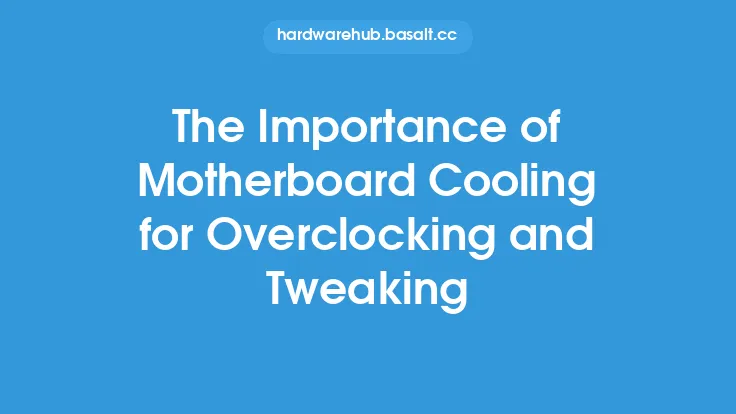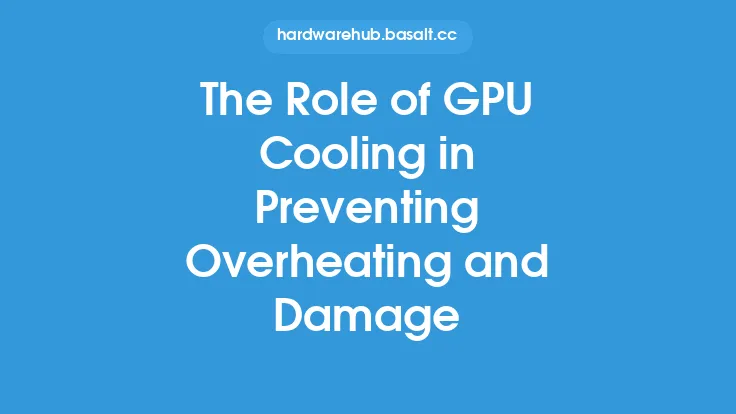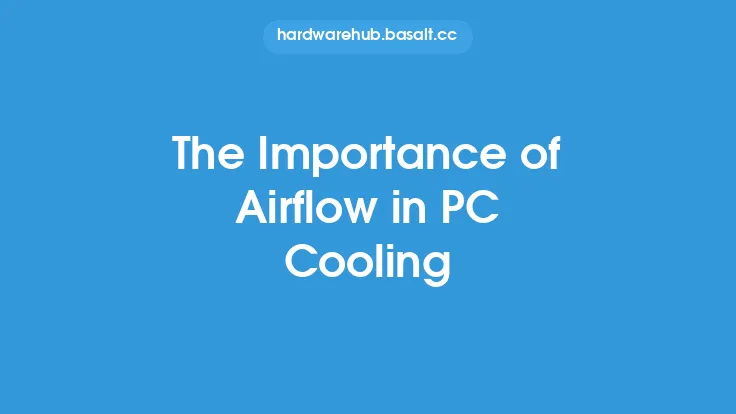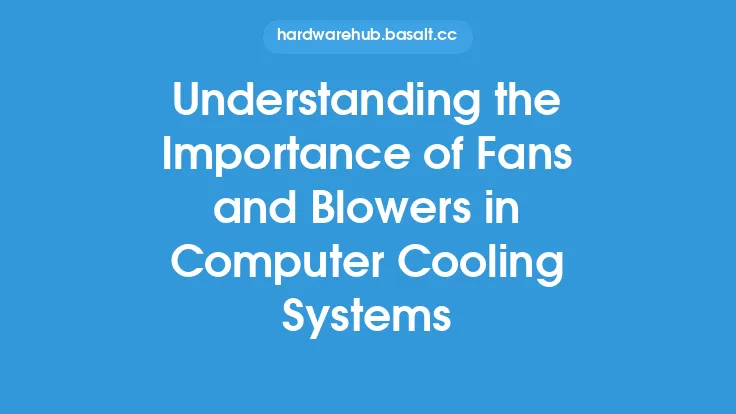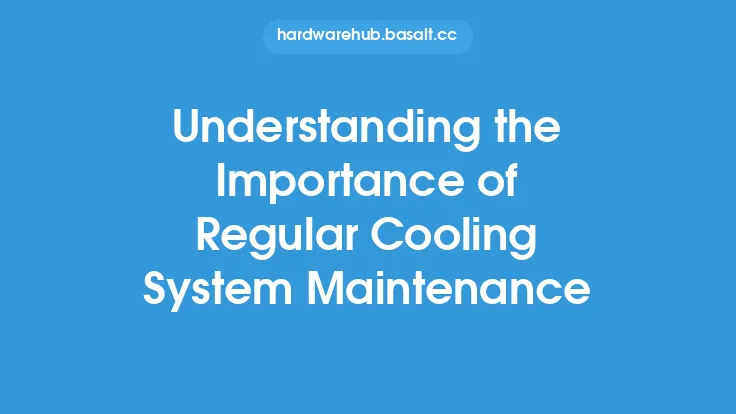Proper GPU cooling is essential for maintaining the longevity and performance of graphics processing units (GPUs). As GPUs continue to evolve and become more powerful, they also generate more heat, which can lead to reduced performance, damage, and even complete failure if not managed properly. In this article, we will delve into the importance of proper GPU cooling, exploring the technical aspects of heat generation, thermal management, and the consequences of inadequate cooling.
Introduction to GPU Cooling
GPUs are designed to handle complex mathematical calculations, which generates heat as a byproduct. The heat generated by a GPU can be substantial, with some high-end models producing up to 300 watts of thermal energy. If this heat is not dissipated efficiently, it can cause the GPU to overheat, leading to reduced performance, throttling, and potentially even damage to the GPU or other system components. Proper GPU cooling is critical to maintaining a stable and efficient operating environment, ensuring that the GPU can function at its optimal level.
Heat Generation and Thermal Management
The primary source of heat generation in a GPU is the graphics processing core, which is responsible for executing instructions and performing calculations. As the GPU processes graphics data, it generates heat, which is then transferred to the surrounding components, including the PCB, memory, and power delivery system. The heat is then dissipated through various means, including conduction, convection, and radiation. Effective thermal management is critical to ensuring that the heat is dissipated efficiently, preventing overheating and maintaining a stable operating temperature.
Consequences of Inadequate Cooling
Inadequate cooling can have severe consequences for a GPU, including reduced performance, throttling, and even complete failure. When a GPU overheats, it can cause the system to throttle, reducing the GPU's clock speed and voltage to prevent damage. This can result in reduced performance, stuttering, and lag, making it difficult to run demanding applications or games. Prolonged exposure to high temperatures can also cause permanent damage to the GPU, including degradation of the silicon, solder joints, and other components. In extreme cases, inadequate cooling can even cause the GPU to fail completely, requiring costly repairs or replacement.
Factors Affecting GPU Cooling
Several factors can affect the cooling performance of a GPU, including the cooling solution, case airflow, and system configuration. The cooling solution, whether it be air or liquid-based, plays a critical role in dissipating heat from the GPU. A well-designed cooling solution can provide efficient heat transfer, while a poorly designed solution can lead to inadequate cooling and overheating. Case airflow is also essential, as it provides the necessary airflow to dissipate heat from the cooling solution. System configuration, including the placement of components and cable management, can also impact cooling performance, as it can affect airflow and heat transfer.
Cooling Solutions and Technologies
Various cooling solutions and technologies are available to address the cooling needs of GPUs, including air cooling, liquid cooling, and hybrid solutions. Air cooling solutions, such as heat sinks and fans, are commonly used in GPUs, providing a cost-effective and efficient means of heat dissipation. Liquid cooling solutions, such as all-in-one liquid coolers and custom loops, offer improved cooling performance and reduced noise levels. Hybrid solutions, which combine air and liquid cooling, can provide the best of both worlds, offering improved cooling performance and reduced noise levels.
Best Practices for GPU Cooling
To ensure proper GPU cooling, several best practices can be followed, including monitoring temperatures, maintaining a clean system, and ensuring adequate airflow. Monitoring temperatures is essential, as it allows users to identify potential cooling issues before they become major problems. Maintaining a clean system, including dust filters and regular cleaning, can help ensure that the cooling solution is functioning efficiently. Ensuring adequate airflow, including proper case ventilation and cable management, can also help to improve cooling performance and reduce the risk of overheating.
Conclusion
Proper GPU cooling is essential for maintaining the longevity and performance of graphics processing units. As GPUs continue to evolve and become more powerful, they also generate more heat, which can lead to reduced performance, damage, and even complete failure if not managed properly. By understanding the technical aspects of heat generation, thermal management, and the consequences of inadequate cooling, users can take steps to ensure that their GPU is properly cooled, maintaining a stable and efficient operating environment. Whether through air cooling, liquid cooling, or hybrid solutions, proper GPU cooling is critical to ensuring that the GPU can function at its optimal level, providing improved performance, reduced noise levels, and increased longevity.

